Hong Kong Leader Offers Apology as Mass Protests Continue
Carrie Lam says she regrets her handling of legislation that would allow extradition of some Hong Kong citizens to mainland China.HONG KONG—Hong Kong citizens marched for hours Sunday in a massive protest that drew a late-in-the-day apology from the city’s top leader for her handling of legislation that has stoked fears of expanding control from Beijing in this former British colony.
Nearly 2 million of the city’s 7 million people turned out, according to estimates by protest organizers. Police said 338,000 were counted on the designated protest route in the “peak period” of the march. A week earlier as many as 1 million people demonstrated to voice their concern over Hong Kong’s relations with mainland China in one of the toughest tests of the territory’s special status since Beijing took control in a 1997 handover.
Well after dark, crowds gathered outside the police headquarters and Chief Executive Carrie Lam’s office. On Saturday Lam suspended her effort to force passage of the bill, which would allow some suspects to be sent for trial in mainland China.
The move did not appease Hong Kong residents who see it as one of many steps chipping away at Hong Kong’s freedoms and legal autonomy. Opponents worry the law could be used to send criminal suspects to China to potentially face vague political charges, possible torture and unfair trials.
Protesters are also angered over the forceful tactics by police in quelling unrest at a demonstration on Wednesday.
Periodically, the shouts of the protesters standing shoulder-to-shoulder in front of the police headquarters would crescendo into a roar that reverberated through the narrow concrete canyons of the red-light district of Wanchai.
Smaller crowds stood chanting outside Lam’s office building.
In a statement issued late Sunday, Lam noted the demonstrations and said the government “understands that these views have been made out of love and care for Hong Kong.”
“The chief executive apologizes to the people of Hong Kong for this and pledges to adopt a most sincere and humble attitude to accept criticisms and make improvements in serving the public,” it said.
Not enough, said the pro-democracy activists.
“This is a total insult to and fooling the people who took to the street!” the Civil Human Rights Front said in a statement.
The marchers want Lam to scrap the extradition bill, which is supported by the communist leadership in Beijing, and to resign.
The crowds filled a wide thoroughfare and side streets paralleling the waterfront of Victoria Harbor as tourists and shoppers who drive much of the Asian financial hub’s economy looked on.
Some participants were skeptical over whether having Lam step down would help.
“It doesn’t really matter because the next one would be just as evil,” said Kayley Fung, 27.
At the march’s end, hundreds sat wearily around the government headquarters. Some were singing, some listening to speeches. Some were just resting.
“There isn’t really a plan. It’s like playing a chess game,” said a man who gave only his first name, Mitchel, perhaps fearing trouble with the authorities.
Protesters have mainly focused their anger on Lam, who had little choice but to carry through dictates issued by Beijing, where President Xi Jinping has enforced increasingly authoritarian rule.
Many here believe Hong Kong’s legal autonomy has been significantly diminished despite Beijing’s insistence that it is still honoring its promise, dubbed “one country, two systems,” that the territory can retain its own social, legal and political system for 50 years after the handover.
The rally drew marchers both young and old, some pushing strollers or carrying slumbering infants. Few wore face masks or seemed to be trying to hide their identities, in contrast with demonstrations Wednesday, when participants expressed worries over possible retribution from the authorities.
Protesters also are angry over the way police used tear gas, rubber bullets and other forceful measures as demonstrators broke through barricades outside the city government’s headquarters in that smaller but more aggressive protest.
The police presence on Sunday was considerably more relaxed, with officers deployed mainly to direct traffic as the protesters wound their way through Hong Kong’s commercial center from a sprawling downtown park to government headquarters.
Farther down the parade route, mourners lined up to lay flowers and pay respects at a makeshift memorial for a man who fell to his death Saturday after hanging a protest banner that read in part, “Make Love, No Shoot” and “No Extradition to China.”
The man slipped from the grasp of rescuers after clinging for a time to scaffolding outside a shopping mall. He missed a large cushion set up to capture him and was declared dead at a nearby hospital.
Many protesters wore ribbons on their shirts and carried placards showing protesters who had been beaten bloody last week.
Pro-democracy activists were calling for a general strike on Monday despite Lam’s decision to suspend work on the legislation. Some labor unions, teachers’ associations and other groups were planning boycotts of work and classes, demanding the Lam administration retire the proposed amendments and not bring them up again for passage at a later stage.
“We encourage all the public to carry on the campaign,” said Bonnie Leung, a leader of the pro-democracy group Civil Human Rights Front. “If any new violence takes place, it will be the responsibility of the police.”
The Communist Party-ruled mainland took control in 1997 with a promise not to interfere with the city’s civil liberties and courts. Many in Hong Kong fear the extradition bill would undermine freedoms enjoyed here but not elsewhere in China.
“China just wants to turn Hong Kong into another Chinese city,” said Alex To, 54, who runs a small business. “Carrie Lam is just a figurehead. Everything depends on the attitudes of the leaders in Beijing.”
After Lam announced she was suspending the legislation to avoid more violence and allow additional debate, Chinese government officials issued multiple statements backing that decision. Lam, however, made clear she was not withdrawing it.
She has sidestepped questions over whether she should quit and also defended how the police dealt with last week’s clashes with demonstrators.
Lam maintains that the extradition legislation is needed if Hong Kong is to uphold justice, meet its international obligations and not become a magnet for fugitives. The proposed bill would expand the scope of criminal suspect transfers to include Taiwan, Macau and mainland China.
So far, China has been excluded from Hong Kong’s extradition agreements because of concerns over its judicial independence and human rights record.
Prosecutions of activists, detentions without trial of five Hong Kong book publishers and the illegal seizure in Hong Kong by mainland agents of at least one mainland businessman are among moves in recent years that have unnerved many in the city of 7 million.
___
Associated Press journalist Tassanee Vejpongsa contributed to this report.
Your support is crucial…With an uncertain future and a new administration casting doubt on press freedoms, the danger is clear: The truth is at risk.
Now is the time to give. Your tax-deductible support allows us to dig deeper, delivering fearless investigative reporting and analysis that exposes what’s really happening — without compromise.
Stand with our courageous journalists. Donate today to protect a free press, uphold democracy and unearth untold stories.
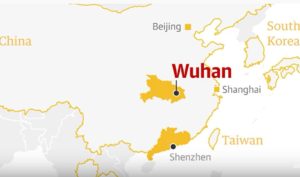
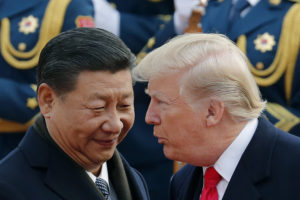
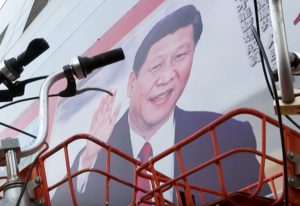
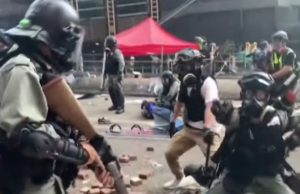
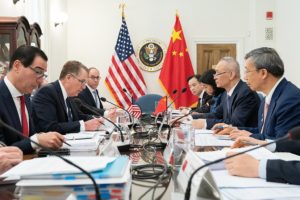
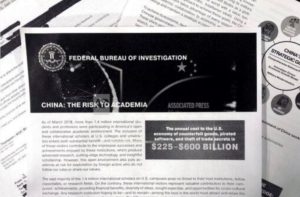
You need to be a supporter to comment.
There are currently no responses to this article.
Be the first to respond.